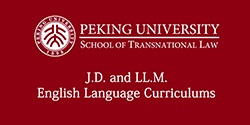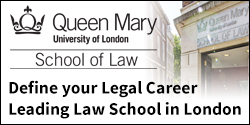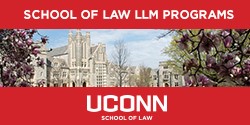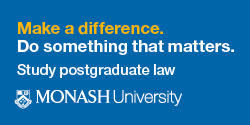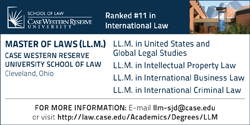Boston College Law School (BC Law)
The University
Founded as a small liberal arts college in 1863, Boston College has grown in size and stature to become one of the world’s leading Jesuit universities. Our student body of 14,500 draws from 100 countries worldwide, and includes some 5,000 students in nationally ranked graduate schools of arts and sciences, education, management, nursing, social work and law. As part of our continuing commitment to academic excellence, we are in the process of adding faculty positions, expanding faculty and graduate research, increasing student financial aid, and widening opportunities in key undergraduate programs.
Even as we have grown in size and prestige, Boston College has remained committed to the goal of Jesuit education: the development of students’ minds and hearts through rigorous intellectual challenge, set in a context of spiritual and ethical values. The University seeks to educate men and women of many cultures and religions to serve others, and to seek leadership roles in seeking a more just society. The Jesuit character brings to Boston College a sense of hope, a respect for the integrity and value of every person, and a deep commitment to justice — qualities that touch every corner of the University.
The Law School
Since our founding in 1929, Boston College Law School has earned an international reputation for educational excellence and the highest standards of professionalism. The school is among the top few law schools in the U.S. in the number of applications it receives, and has an overall applicant-to-acceptance ratio that is among the most selective in the nation.
Our faculty includes authors of casebooks — in tax, environmental law, and civil procedure, to name a few — and other major academic books. Authors of articles too numerous to count, published in the country’s leading law reviews. A former President of the International Society of Family Law. A Special Advisor to the Organization for Economic Cooperation and Development. Twelve members of the American Law Institute, the U.S.’s premier law reform organization. Advisors to governments and NGOs around the world. As importantly, though, our faculty are extraordinary teachers as well as scholars. Indeed, their primary mission is to mentor and teach our students, and they do it well.
Is Boston College the right school for you? Only you can answer that question, but here’s what we think is special about our school. It is not simply our faculty, as wonderful as they are. Nor is it simply our students, who are among the most talented in the world. Nor is it the great Jesuit university of which we are a part. Nor is it our beautiful campus, or our close proximity to Boston — New England’s most cosmopolitan city.
Rather, it is our ethos. While we offer a world-class legal education, we put special emphasis on the ideals of social justice and public service. This approach makes for students who are at once highly credentialed and highly collegial in their relationships with each other and with the faculty. It also makes for a strong sense of community – a sense that springs from a shared respect for law as the cornerstone of a democratic society, and a shared respect for one another as students, scholars and practitioners of the law.
The Program
The Master of Laws (LL.M.) degree program is designed to immerse participants in the intricacies and flavor of the United States legal system, and help prepare them for the challenges of work in an increasingly global legal community. In this sense, it is directed primarily to lawyers and law graduates trained outside of the U.S. However, we also welcome applications from U.S.-trained lawyers who may uniquely benefit from advanced work here.
The program?s possibilities are as diverse as the students we attract. LL.M. students may choose from among most of the courses in the Law School?s extensive curriculum, including both introductory and advanced courses. We do not channel students into particular subject area tracks, so they can sample a range of different fields if that makes sense for them. However, the curriculum also gives students ample opportunity to specialize in a particular area if their study interests call for doing so. For example, beginning in 2012-13, students may pursue an optional concentration in one of five areas: business and commercial law, environmental law, human rights, intellectual property, and taxation.
Students are required to complete at least 24 credits of work in residence during a single academic year. This includes a core course, “The United States Legal System”, which is required of all foreign-trained candidates. Students also must satisfy a written work requirement in one of the following two ways: (1) by completing the course Legal Research and Writing for LL.M. Students, or (2) by producing a piece of writing of a breadth and magnitude commensurate with the school’s upper-level writing requirement for J.D. students. This can be completed in one of the school’s regular seminars, or written independently under faculty supervision. Otherwise, students study alongside their J.D. classmates — a true immersion experience in American legal education.
Our LL.M.s thus get the best of both worlds. On the one hand, they receive the individual attention that comes from participating in a small program (15 to 20 students per year). On the other, they are full members of the broader BC Law community — future leaders in legal practice, government, NGOs, the judiciary, law teaching, and industry.
Entry Requirements
Admission to the LL.M. program is highly selective. We are most interested in applicants who have completed their prior legal studies with high rank and who intend to return to their home countries to contribute to the legal profession. Otherwise, we are ecumenical: we are equally interested in applicants pursuing careers in private practice, government service, the judiciary, international organizations, non-governmental organizations and legal scholarship.
At a minimum, applicants must have either
· graduated from a U.S. law school approved by the American Bar Association,
· obtained a full degree in law from a non-U.S. university, or
· be admitted to practice law in a country other than the U.S.
In addition, applicants whose native language is not English must have achieved a score of 100 (IBT) on the Test of English as a Foreign Language (TOEFL) or an Overall Band Score of at least 7.5 on the International English Language Testing System (IELTS).
Application Procedure
Application forms and instructions are available on our web site at www.bc.edu/schools/law/admission/llmprogram/Applying.html . You may apply either online through the Law School Admission Council or by downloading a paper copy of our application. If you are applying for enrollment in Fall 2013, the application deadline is April 1, 2013. However, we strongly encourage the submission of applications earlier than April 1. We anticipate that decisions on most applications will be made by May 15, 2013. Some applicants may be notified of our decision well before this date.
Tuition and Fees
The estimated cost of study for a single student during the 2012-13 academic year is $61,670. This figure consists of tuition and fees of $43,270 and estimated living expenses of $18,400. It does not include the expenses of travel between the student’s home country and the Boston area. The comparable figures for the 2013-14 academic year are likely to be higher. Applicants requiring financial assistance should investigate funding sources in their home countries well in advance.
Boston College Law School has a limited amount of scholarship funds available to LL.M. students. The financial aid application form is available on our web site, and may be submitted either with the application for admission or once an applicant has received an offer of admission. Scholarship awards are made primarily on the basis of the applicant’s financial need.
Location
The Law School’s campus is an oasis in the midst of a bustling suburban and city landscape, a place where gentle stretches of green lawn and manicured gardens complement some of the most technologically advanced facilities available to law school students. Located on 40 acres of land in Newton, Massachusetts, the campus offers fast access by car or public transit to the city of Boston — an international law student’s dream.
Founded in 1630, Boston is a blend of the past, present, and future. Seventeenth- and eighteenth-century buildings are interspersed among tall, modern office buildings, and the city is surrounded by a corridor of high-technology industries. As state capital and first city of New England, it supports a thriving legal practice in a broad range of fields. The area also boasts the greatest concentration of higher education institutions in the United States, and is a hub for the arts and culture, with world-renowned museums and a wide variety of sporting, musical, and theatrical events. Further afield is the New England countryside – legendary for its spectacular fall foliage, variegated coastline, and charming Colonial-era towns.
Student Life
LLM student life starts with the LLM student community. That community is small, but vibrant. In 2012-13, we are hosting 19 students from 16 countries: business lawyers from Argentina, Colombia, France, Ghana, India, Japan and Korea, an environmental lawyer from Puerto Rico, human rights lawyers from Mexico and Nigeria, and recent law school graduates from Belgium, Brazil, China, Germany, Spain, and Taiwan. We work hard to help our LLM students engage each other, organizing social events, symposia, court visits, and so on.
LLMs’ lives are not limited to each other, though. Indeed, we put a premium on integrating LLMs into the Law School community in general, including our 800 JD students. From the outset, each LLM student is paired with one or two JD student “buddies” who can introduce the LLM student to new friends, show him or her around, and provide informal advice on things like housing, restaurants, movie theaters, and the Boston area in general. In addition, we introduce each LLM student to faculty working in the student’s areas of interest early during their time here, in order to promote informal mentoring relationships.
There is also a vibrant community of students, faculty, and visitors interested in international matters in particular. This includes several internationally oriented student organizations within the Law School, and the Graduate International Student Association affiliated with the University’s Office of International Students and Scholars. To enhance the experience, we offer an International Legal Studies Colloquium, a periodic gathering of students, faculty, and others for the discussion of ongoing work in the field.
Finally, LLM students’ lives are enriched by the life of the University as a whole. Opportunities include the plays and concerts performed in the Robsham Theatre on the main campus; Saturday afternoon football games before a roaring home crowd in Alumni Stadium; exhibitions of world-renowned paintings and sculptures in the McMullen Museum of Art; and the dozens of other cultural, educational, and sporting events that take place in every part of the campus each week. A variety of the University’s clubs and groups welcome graduate students, and the RecPlex has facilities for indoor tennis, squash, racquetball, volleyball, basketball, swimming, indoor track, weight training, and aerobics.
Make An Enquiry
To know more about this institution and various course programmes, you can make an enquiry and someone will get in touch with your shortly.




